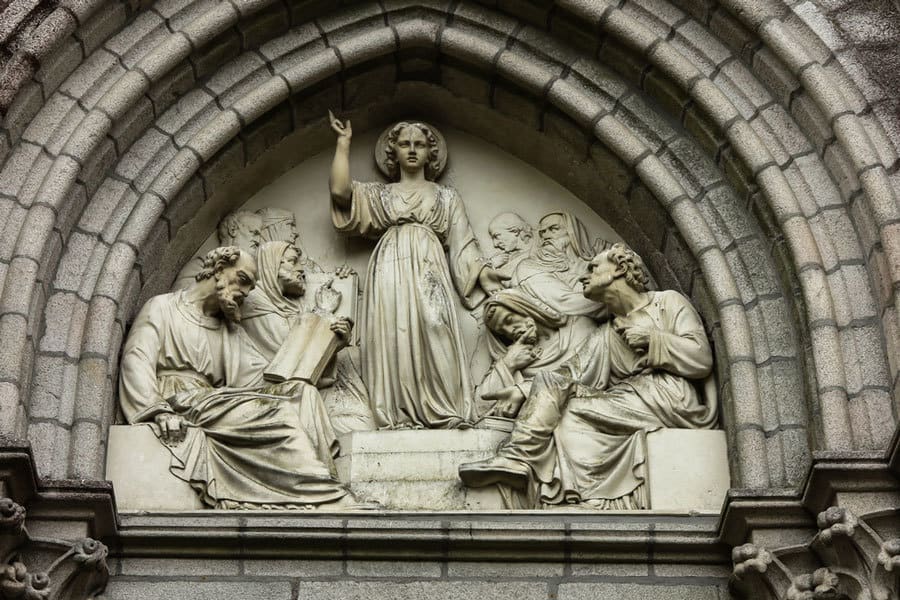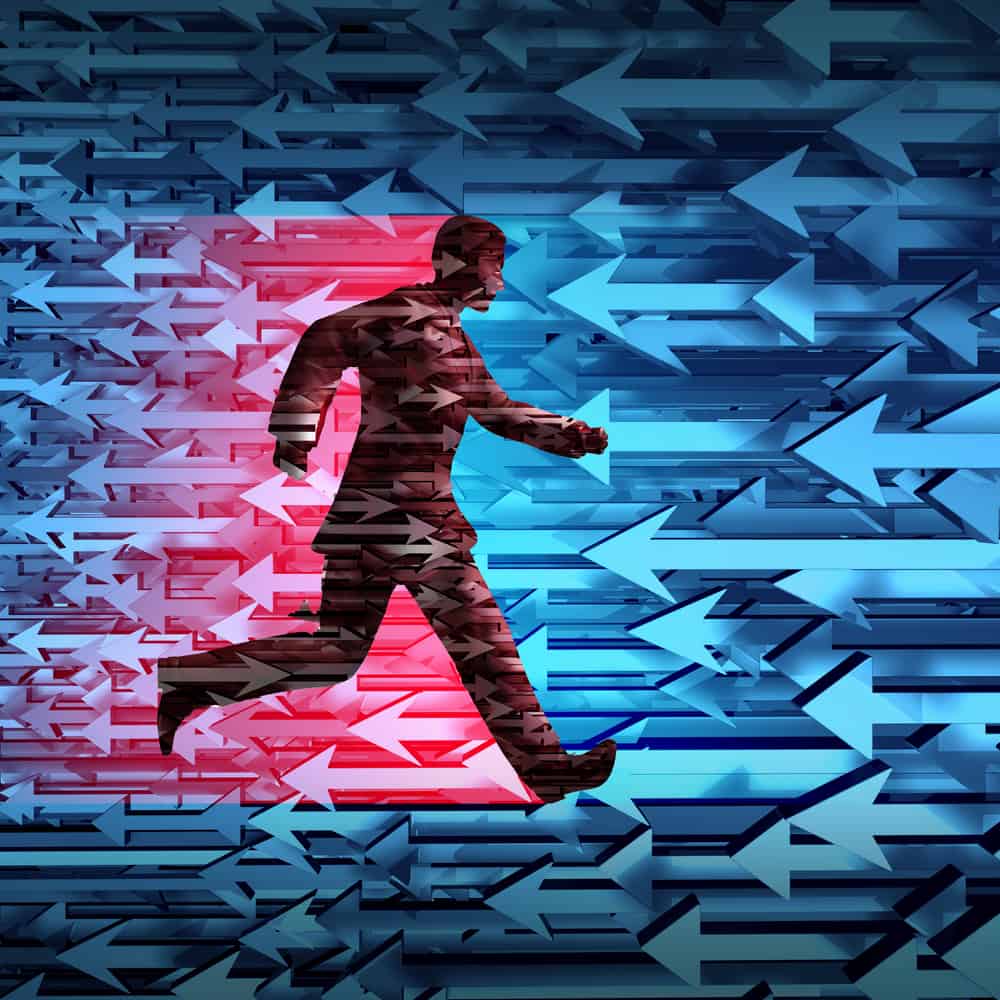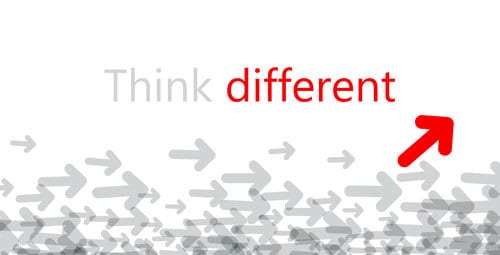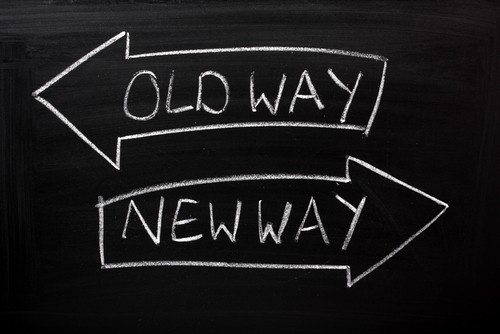- in Blog by David Wilkinson
- |
- 1 comments
Conventional wisdom and change: the role of mavericks in creating change

Conventional wisdom and change
Much of the rhetoric around change in organisations is based on conventional wisdom. Conventional wisdom refers to the commonly held beliefs, ideas and assumptions that a population has about an issue. These lead to a set of expectations, interpretations and explanations that people assume are true. As a result the ideas embedded in conventional wisdom are rarely challenged.
The issue is what effect does conventional wisdom and change, particularly organisational change interact. What effects does the conventional wisdom or ‘facts’ and truisms that swirl around organisations have on our ability to change an organisation?
This research briefing was sent to members in July 2017 – would you prefer to be kept more up-to-date and well informed? Get weekly research briefings sent direct to you, a monthly copy of The Oxford Review, Infographics, Video Research Briefings, Special Reports, The ability to request research, access to the entire archive, members only podcasts and more? Click here
- How conventional wisdom can entrap an institution
- The maverick as a driver of change
- Two main conditions about conventional wisdom and change
- Institutions and organisations
- Types of maverick
- Push and pull of change
- Distributed agency
- No lone heroes required
- Reference
How conventional wisdom can entrap an institution
Whilst conventional wisdom can be based on well-founded beliefs, it is also just as likely to be based on ill-founded inter-organisational belief systems. The issue with organisational idioms of conventional wisdom is that it can be very hard to break that wisdom and to bring about change, especially considering that many organisations are somewhat conservative in their approach to things.
Breaking conventional wisdom and effecting institutional change is difficult, but it can be done. This is a briefing of a new model developed last year.
Be impressively well-informed
Get your FREE organizational and people development research briefings, infographics, video research briefings, a free copy of The Oxford Review and more...
The conventional wisdom of breaking conventional wisdom, particularly in academic circles, is that it tends to take one extremely powerful actor to challenge current thinking. However, when Sherer conducted an historical analysis of changes in US Major League Baseball, he found a different story. What he discovered challenges the current thinking about changes in conventional wisdom and change in general.
The maverick as a driver of change
His major finding was that it is the lone mavericks that often do the challenging in organisations, and who, under certain conditions, create change. In effect they challenge conventional wisdom and can help to create change
Two main conditions to challenge conventional wisdom and change to occur
- The main condition is that in order for change in conventional wisdom and change to occur, the maverick either gets other actors involved in the process or that other actors or agents of change get behind the new way of thinking the maverick brings.
- The second major condition for the organisation to challenge conventional wisdom and change is that these mavericks and their counterparts need to be both outside and inside the organisations and institution.
Institutions and organisations
Organisations will often work together connected to an institution. In the case of this research, the institution is the Major League in the US while the organisations are the teams. In medicine this might be a Royal College of Medicine as the institution and various medical practices as organisations. Organisations may compete with each other or cooperate (or both), but they will do so within the remits set by the overarching institution.
Overall Sherer found that mavericks tend to operate and think much like an entrepreneur, developing disruptive thinking, products and processes. He found that there are two types of maverick:
- Institutional mavericks or entrepreneurs
- Organisational mavericks or entrepreneurs
The institutional entrepreneur
Institutional entrepreneurs are people who reside outside an organisation, but within the profession or institutional group.
Organisational entrepreneurs, on the other hand, operate both within the institutional and the organisational context. This means that institutional entrepreneurs (outside the organisation but within the institution or sector) have the benefit of a more ‘unencumbered vantage point’ and, unlike organisational members, they can often see the wood and the trees. In effect institutional entrepreneurs tend to be entrepreneurs in small non-organisational companies, or consultants or other people from the very institutions themselves.
Institutional entrepreneurs tend to see things differently and often tend to challenge the conventional wisdom, particularly at an organisational level. They are often lone voices in the sea of institutional and organisational thinking. Frequently seen by many as a trouble maker or just a bit of a loose cannon, the institutional entrepreneur’s role is to challenge and to create change. They often produce alternative ways of thinking and doing things. They frequently take short cuts others fear to take, have their own ways of working, thinking and doing things and often come up with ideas that challenge thinking and customs. Usually, however, institutional entrepreneurs are made to conform. This pressure to conform can occur in both subtle and overt ways. However, this study found that, by giving them a freer rein, they can create the thinking and practice of the next wave.
As a result these entrepreneurs often create challenge to the organisational conventional wisdom and change may ensue if the conditions are right. In other words mavericks can produce the changes institutions and organisations need.
The trick is to observe and not restrict. If these people can make their alternative views and thinking socially acceptable, they are the harbingers of change. This is where others are involved. They need other people to make their ideas acceptable, enabling that change to take place.
The role of the organisational entrepreneur in conventional wisdom and change
A number of organisational entrepreneurs acting in concert is needed for change to occur. They don’t have to know one another or even have the same agendas. However, they need to be challenging the current thinking and practice in similar ways at the same time in order to exert pressure on the system. These are often the people, Sherer found, who create organisational and occasionally institutional or professional change.
The organisational entrepreneur that seeds the new ideas and ways of seeing things in an organisation is usually a maverick who tends not to conform to the current thinking and behaviour. They usually sit outside the espoused organisational conventional wisdom and change may or may not follow. These people often have more purchase in smaller organisations, which are actively looking to differentiate themselves, rather than create conformity across the organisation for efficiency purposes. These organisations often stand to gain more from the changes and have less to lose from keeping with the conventional practices and thinking.
Changes in thinking at an institutional level create push for change. Changes at a collective organisational level create the pull for change. When these two forces combine in an area, the mavericks can frequently bring about useful and advantageous change.
The peripheral organisational entrepreneur faces greater barriers to achieving change.
This is why they need to work with others (either separately or in concert) to achieve the change required. This is known as ‘distributed agency’. Distributed agency refers to the situation where the actions or operations of a range of different individuals (often with different motivations, interests and in different places) combine to create an outcome they all wanted. Distributed agency can either be coordinated or uncoordinated, i.e. intentional or by chance.
Lone heroes changing their industry or organisation on their own are the stuff of legend Sherer contends. Conventional wisdom is only really changed by the collective actions of disparate distributed groups of people. Such change in thinking tends to only come about from distributed agency.
Reference – available to members (login to see the reference)
The Hottest Research Trends 2018: Analysis by The Oxford Review
Be impressively well informed

Get the very latest research intelligence briefings, video research briefings, infographics and more sent direct to you as they are published
Be the most impressively well-informed and up-to-date person around...






1moisten